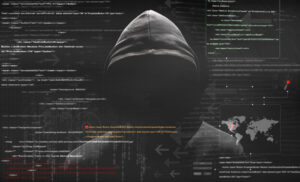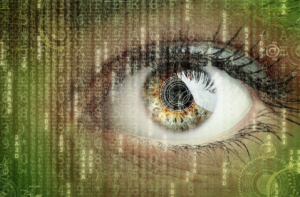Edward Snowden may be one of the world’s most wanted men but that hasn’t stopped him from helping to design a phone case that can tell you if you’re being spied on.
After leaking thousands of classified documents by the US National Security Agency (NSA) back in 2013, Snowden has been seen by many as a true modern day freedom fighter. The leak of evidence that the NSA had been spying on millions of American citizens was lauded by journalists the world over for highlighting such a serious breach of personal freedom.

It may have forced him to live his life on the run but it also re-opened the debate about the difference between doing what is right and doing what is legal. It is therefore unsurprising that a device designed by the man at the heart of such an important debate has been met with such excitement by those in both the technology sector and journalists.
Currently residing in Russia to avoid being arrested by the US government, Snowden has been worked on a design with fellow hacker Andrew Huang. The plans were outlined by them in an online paper called ‘Against The Law: Countering Lawful Abuses of Digital Surveillance.’ The case would sound an alarm when your phone’s cellular, wi-fi, bluetooth or radio connections are sending and receiving data without your permission.
The case itself is based on the iPhone 6, although it can be tailored to other models and would wire into your phone’s hardware through the sim card slot. Alongside the alarm, the case would also have a kill switch which would immediately turn off the phone and prevent any further data exchange with the unwanted device.
The aim of the phone case is to prevent governments from being able to spy on their citizens. In particular the case is designed for journalists who are carrying information that governments do not want its citizens to know. The case could lead to an unprecedented level of freedom of the press in countries with high levels of censorship.
The censorship of mobile phones has had fatal consequences for journalists in the past few years, as the location tracking has allowed journalists to be followed and prevent them from releasing sensitive information.
One case in 2012 saw the death of two war correspondents, Marie Colvin and Remi Ochli, who were allegedly tracked by Syrian government forces to prevent them from publishing information and photos.
This device could become necessary to protect individual and collective liberty. Snowden’s organization Freedom of the Press Foundation will fund a prototype in China next year where we will discover if this potentially revolutionary device works. If it does, Edward Snowden’s legacy as an icon of freedom will endure.
Source
https://www.documentcloud.org/documents/2996800-AgainstTheLaw.html#document/p1


This is a great feat considering the lack of protection we have in this area. We are losing more and more privacy and protection as the days go by.